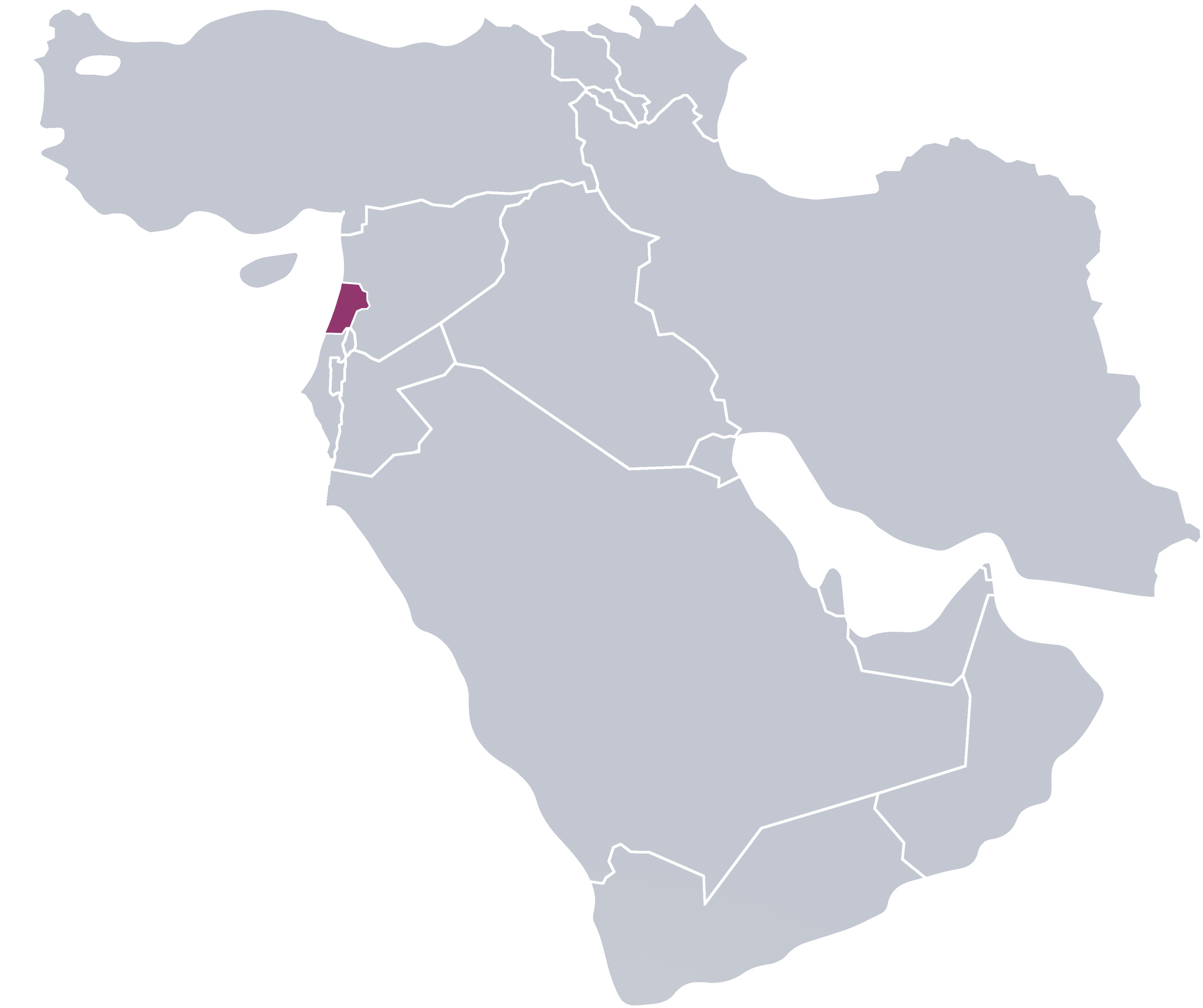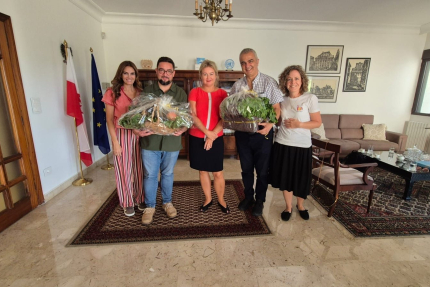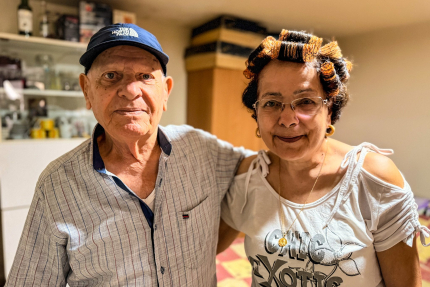“We make coffins. Universal size. Basic, but respectable,” says Walid. “Do you know of another foundation that funds funerals? That’s the type I run, because the Lebanese can’t even afford it anymore.
We drive through Beirut at night. It’s dark. This is how we drove through Kiev during the air raids. A concrete jungle. Nothing was illuminated. Buildings appeared and disappeared in the light of passing cars. The play of shadows, the noise of the streets. Beirut fades slowly, without loud bomb alarms, the swish of rockets or deafening explosions. The country is bankrupt. No one is deluding themselves that it will still get back up on its feet.
“Explain to me how it is that Lebanon has not yet collapsed. Everything is working somehow. People are going to work, many shops and restaurants are still open.
All thanks to those who left Lebanon a long time ago and send money to their relatives for the most basic needs. Those who don’t have family abroad, you won’t see on the streets. They cannot afford heating, fuel for generators, even food. Medicines and children’s education have become an unattainable luxury. Believe me, nothing works here anymore.”
A few weeks ago a relative of a friend of ours ended up in hospital in the north of the country. He had no insurance because basically no one has it here. Doctors in such situations only approach the patient when he pulls out cash. Unfortunately, he didn’t have that. He died before entering the local ED.
This school year tuition fees must be paid in dollars. Education has suddenly become unaffordable. US$ 1,500 for one child’s tuition at a monthly income of less than US$ 200 is a staggering amount.
Now the numbers. Before the crisis in 2019, one dollar would get 1,500 Lebanese pounds. A year ago it was 30,000. Today it is 89,000. Today the middle-income Lebanese live on the poverty line. Below it are 80% of the inhabitants of this only Christian country in the Middle East.
“How can Lebanon be saved? If Christians from other countries wanted to support Lebanese families, but directly, this could work. It will never succeed through the corrupt government and the equally subservient church organisations,” says our interviewee. You can hear the bitterness and powerlessness in his voice. Like all Lebanese, he lost his life savings when, at the height of the crisis, Lebanese banks told their customers that the money deposited in the banks would never be seen again.
“Every Syrian refugee in the country, and we already have more than two and a half million of them, gets $100 every month. The humanitarian organisations are here for them. No one is interested in our situation. Christians in Lebanon cannot cope without help,” says Rita.
In the next few days, we will bring you the stories of very specific people and our fervent plea for you to take them into your care by sharing even a little. Whatever you can afford. These are mainly elderly people who are seriously and chronically ill, for whom the economic meltdown is robbing them of their dignity and the chance of treatment. Yes, there is a crisis here too. We would all like things to get better. But the Lebanese are victims of an economic collapse that has not happened anywhere in the world since the 19th century. They do not want simply to have it better. They are struggling to survive, even though until recently, they were living at a very similar level to ours.
If you can help today, visit GoodWorks 24/7 and feed the hungry with us.





